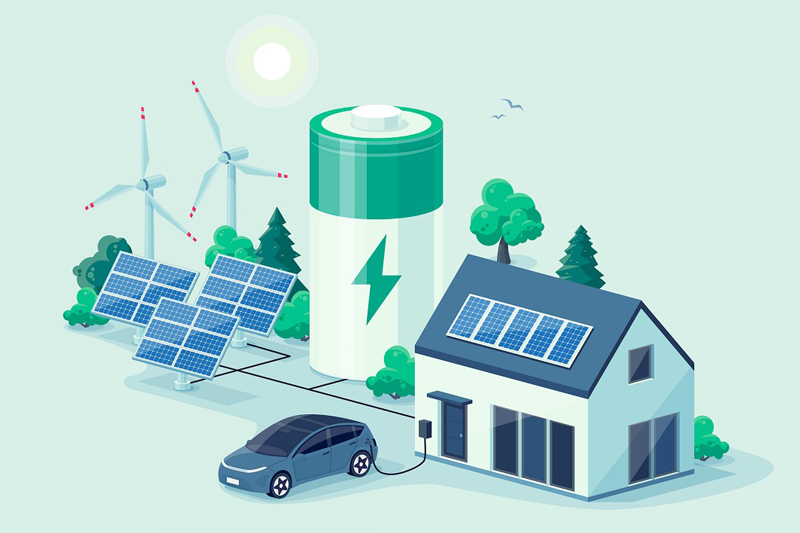As the UK continues to lead the way in energy storage investment, NICEIC is encouraging electricians to start upskilling to prepare for growing demand and, in turn, help play a lead role in the clean energy transition.
Amid rising energy prices and a sense of growing eco-responsibility, recent years have seen an unprecedented increase in home energy storage by using batteries. According to recent figures 2023 saw a huge 1,700 per cent year-on-year increase in annual battery storage installation. Across the board, a separate study reveals the total battery project pipeline now stands at 84.8GW as of December 2023, comprising a year-on-year increase of 50.3GW.
In light of this, NICEIC is advocating for electrical contractors to upskill into energy storage systems as a way to support customers to reduce energy costs, gain energy security and lower their carbon footprint.
NICEIC Technical Director, Paul Collins, comments: “British householders are paying far more for electricity than they were a couple of years ago. In fact, it was recently reported that UK energy prices have risen faster than almost any other developed country since 2019. In this way, reducing reliance on the national grid is becoming increasingly attractive for those seeking to reduce energy costs and also do their bit for the planet.
“A critical component of this marked shift is energy storage. For those homeowners with rooftop solar panels, what’s great about adding battery storage is that it can allow them to become self-sufficient and negate the need for grid supply. This can save the average consumer hundreds of pounds a year and relieve cost of living pressures. Another big benefit is that these systems can provide critical backup power – something which is becoming a bigger consideration amid grid insecurity issues.
“Another option is where consumers use storage to reduce bills by purchasing energy at a low tariff at a time when there is a low demand and store it to meet an internal demand at other times, usually when consumption peaks, typically during the evening.
“The upshot is that installers have a huge new revenue opportunity as homeowners will increasingly turn to them for advice on the latest and most advanced energy storage solutions and help them to decide the most suitable approach for their home and needs.”
To provide a helping hand, NICEIC has introduced a new qualification on Electrical Energy Storage Systems (EESS) for certified businesses seeking to upskill their electricians’ knowledge and competence in this important innovation category. Covering the design, installation and commissioning of Electrical Energy Storage Systems, the two and a half day EAL accredited qualification complements NICEIC’s popular four-day solar qualification.
For related articles, click here





